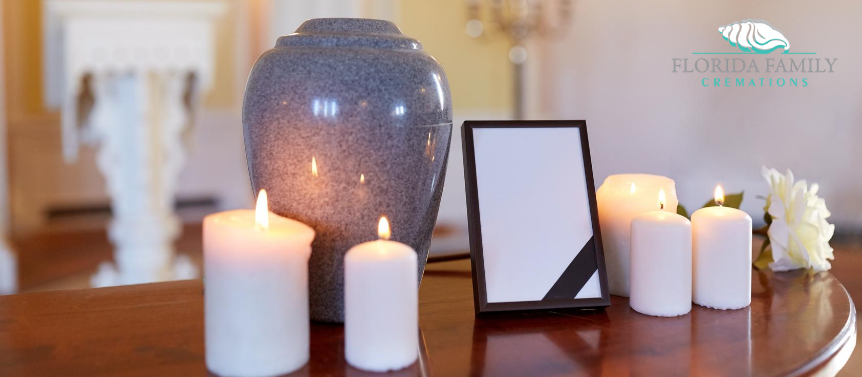Cremation is gaining popularity in Florida, as more and more people are opting for cremation over funerals. For families looking for cremation services, there’s an immediate need for the process soon after a loved one passes on. At Florida Family Cremations, we understand grieving a loved one is difficult for the family. So, we handle the paperwork and cremation pre planning to give your loved one a flawless send-off.
With cremation gaining traction in Florida, several laws have been put in place to regulate the cremation process. Therefore, even as you think of cremating your loved one, you need to know these laws. Let’s look at some Florida cremation laws you’ll need to understand before you contact us for cremation services.
1. Registration of death
Florida laws require that you register the death of a loved one with the local office within five days. Registration should also be before cremation. Once you register a death, a certificate will be issued. This certificate is essential for handling the deceased taxes, obtaining mourning fare from airlines, and getting time off work for bereavement.
Anyone in charge of the deceased can typically file for a death certificate. A funeral home can, as well, file for a death certificate upon approval by the bereaved family. It’s also essential to get several copies of the death certificates as you’ll need them later. Note that if you need the cause of death indicated in the certificate, you have to show a valid ID photo.
2. When can you start the cremation process?
Once you register a death, how soon can you cremate your loved one? As part of regulations, Florida stature § 872.03 requires that you wait for at least 48 hrs. from the time of death before cremation. This law allows a person or family time to change their mind if they want.
3. Approval by Medical Examiner
Before the family can go on with the cremation process, Florida law requires that a medical examiner give or deny permission to dispose of a body by cremation. If the authorities or examiner suspects foul play, then the body should be buried and not cremated. This law is understandable because the body can later be exhumed for evidence.
Under Florida cremation laws, the medical examiner should perform an autopsy and determine the cause of death. Even so, the examiner can also rely on the information in the death certificate. They can as well enquire from authorities if there are formal complaints launched challenging the cause of death.
4. Declaration of Intent
Florida statute § 497.607 requires that before any cremation, a person with legal authority should give written authorization. Under this law, verbal communication is not enough.
So, who qualifies as for legal authority?
Several persons might qualify to have legal authority. For instance, if you plan your cremation before death, you can provide written authorization. This authorization remains effective even after death.
If you’re arranging a cremation for a family member who has passed on, you must have the legal authority to request cremation services.
Under Florida laws, the surviving spouse, child, siblings, or parents can have legal authority. If no family members are surviving, then a personal representative for the deceased has the legal authority to request a cremation process.
5. Deadline to Pick Up the Ashes
Florida cremation laws state that the family has 120 days to pick up the ashes. If ashes remain unclaimed 120 days after the cremation, the funeral home can dispose of the remains. However, if you need more days for some reason, you should contact the funeral home.
Get Help from Florida Family Cremations for Cremation Services in Clearwater
A bereavement process is a trying time for any family. This is why it is vital to work with professionals. At Florida Family Cremations, we offer you a shoulder to lean on during these difficult times. We will handle everything for you as you mourn your loved one – from getting the right paperwork, cremation pre planning, and the whole cremation process. Our experts are very professional, passionate, and full of compassion. Contact us at (727) 223-5911 and let us help you ease your burden.

